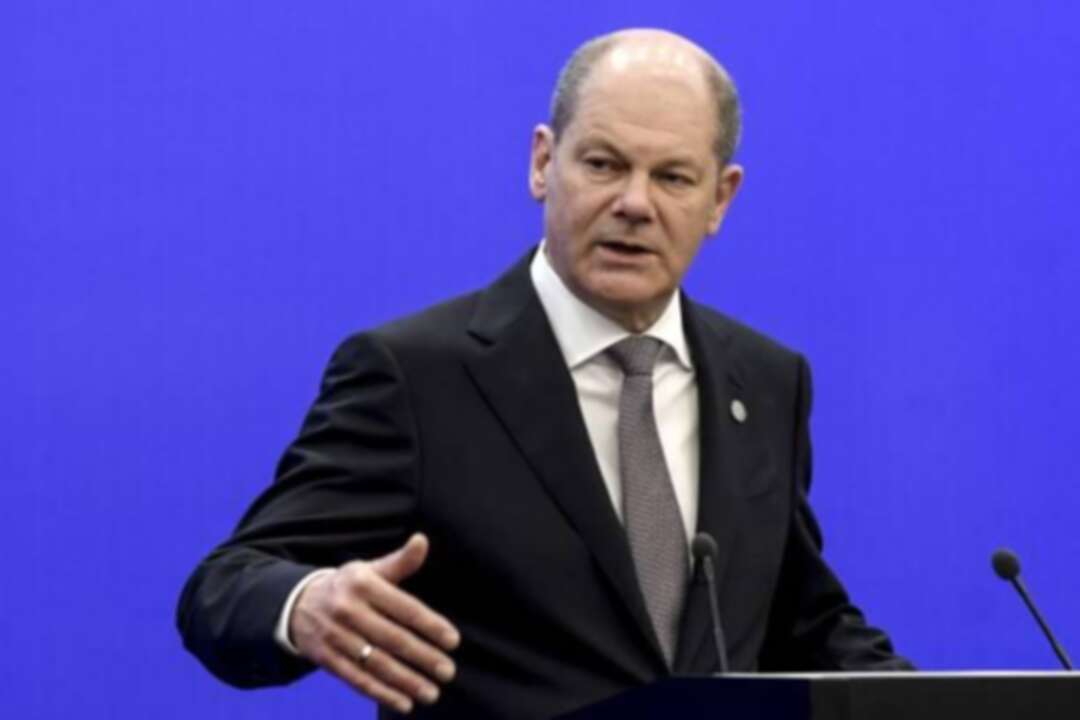-
German Foreign Minister rules out joining U.S.-led Hormuz mission

The United States had asked Germany to join France and Britain in a mission to secure shipping through the strait, through which about a fifth of the world’s oil passes, and to “combat Iranian aggression”, the U.S. Embassy in Berlin said on Tuesday.
“Germany will not take part in the sea mission presented and planned by the United States,” said Maas, adding the situation in the region was very serious and everything should be done to avoid an escalation. “There is no military solution.”
The security of shipping in the Gulf has shot up the international agenda since May, when Washington accused Iran of attacking ships there, which Iran denied. In July, Iran seized a British-flagged tanker in the Strait of Hormuz in apparent retaliation for Britain’s seizure of an Iranian ship accused of violating sanctions by taking oil to Syria.
Washington’s European allies disagreed with President Donald Trump’s decision to pull out of a nuclear deal with Iran last year and impose sanctions. They have been hesitant to back a U.S.-led mission that might increase tension in the region.
Britain called last week for a European-led naval initiative, but the United States has continued to press for a mission that would include its own forces, which are far more powerful than those of European allies.
In Germany there is opposition within conservative Chancellor Merkel’s coalition, especially from her junior Social Democrat (SPD) partners, to joining any U.S-led mission.
The comments from Maas, a Social Democrat, were the most explicit yet from the government but they echoed a statement from a government spokeswoman who said earlier Germany had not offered to join a planned U.S.-naval mission.
“The government is reticent about the concrete U.S. proposal and so has not made an offer,” government spokeswoman Ulrike Demmer told a news conference in Berlin after a cabinet meeting.
EUROPEAN ALTERNATIVE?
In Brussels, Germany’s new Defence Minister Annegret Kramp-Karrenbauer, Merkel’s protege, struck a softer note, saying no final decision had been taken but she, too, stressed that the Europeans had different views from the United States.
“We now have a first general request from the United States, the other international partners for a possible mission,” she told reporters before a meeting with NATO Secretary-General Jens Stoltenberg.
“We are reviewing these requests, in close cooperation with Britain and France, and we are doing this against the backdrop of our political and diplomatic goals and in this overall assessment a corresponding decision will be taken,” she said.
A spokesman for Germany’s defence ministry denied there was a discrepancy in the statements from Demmer and Kramp-Karrenbauer, saying while Berlin was examining possible participation, no official decision had been taken.
Earlier, German Finance Minister and Vice Chancellor Olaf Scholz said it was important to avoid a military escalation in the Gulf region and that a U.S.-led mission carried the risk of being dragged into an even bigger conflict.
“I’m very sceptical about that, and I think that’s a scepticism that many others share,” Scholz told ZDF television.
Since the end of World War Two, Germany has been reluctant to get involved in military missions abroad. A Civey poll showed on Wednesday that 56% of Germans were against joining an international military mission in the Strait of Hormuz.
Influential Conservative Norbert Roettgen said he believed Germany should not join the U.S.-led mission, but backed a European mission, without Britain if it should choose to join the United States.
You May Also Like
Popular Posts
Caricature
BENEFIT Sponsors BuildHer...
- April 23, 2025
BENEFIT, the Kingdom’s innovator and leading company in Fintech and electronic financial transactions service, has sponsored the BuildHer CityHack 2025 Hackathon, a two-day event spearheaded by the College of Engineering and Technology at the Royal University for Women (RUW).
Aimed at secondary school students, the event brought together a distinguished group of academic professionals and technology experts to mentor and inspire young participants.
More than 100 high school students from across the Kingdom of Bahrain took part in the hackathon, which featured an intensive programme of training workshops and hands-on sessions. These activities were tailored to enhance participants’ critical thinking, collaborative problem-solving, and team-building capabilities, while also encouraging the development of practical and sustainable solutions to contemporary challenges using modern technological tools.
BENEFIT’s Chief Executive Mr. Abdulwahed AlJanahi, commented: “Our support for this educational hackathon reflects our long-term strategic vision to nurture the talents of emerging national youth and empower the next generation of accomplished female leaders in technology. By fostering creativity and innovation, we aim to contribute meaningfully to Bahrain’s comprehensive development goals and align with the aspirations outlined in the Kingdom’s Vision 2030—an ambition in which BENEFIT plays a central role.”
Professor Riyadh Yousif Hamzah, President of the Royal University for Women, commented: “This initiative reflects our commitment to advancing women in STEM fields. We're cultivating a generation of creative, solution-driven female leaders who will drive national development. Our partnership with BENEFIT exemplifies the powerful synergy between academia and private sector in supporting educational innovation.”
Hanan Abdulla Hasan, Senior Manager, PR & Communication at BENEFIT, said: “We are honoured to collaborate with RUW in supporting this remarkable technology-focused event. It highlights our commitment to social responsibility, and our ongoing efforts to enhance the digital and innovation capabilities of young Bahraini women and foster their ability to harness technological tools in the service of a smarter, more sustainable future.”
For his part, Dr. Humam ElAgha, Acting Dean of the College of Engineering and Technology at the University, said: “BuildHer CityHack 2025 embodies our hands-on approach to education. By tackling real-world problems through creative thinking and sustainable solutions, we're preparing women to thrive in the knowledge economy – a cornerstone of the University's vision.”
opinion
Report
ads
Newsletter
Subscribe to our mailing list to get the new updates!






















